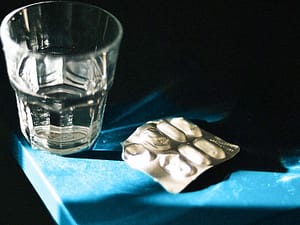Type 2 diabetes: Using herbs and supplements – Medical News Today
Lifestyle strategies and medications are the main ways to manage type 2 diabetes. But, some plant remedies, herbs, and supplements — such as aloe vera and bitter melon — may also help.
In diabetes, the body either does not produce enough insulin or produces insulin that it does not use effectively.
Herbs and supplements cannot cure diabetes and cannot be a standalone treatment. However, some, combined with conventional treatment, may relieve diabetes symptoms and reduce the risk of complications.
According to the 2022 American Diabetes Association (ADA) Standards of Medical Care in Diabetes, there is no clear evidence of herbs or supplements benefitting people with diabetes without additional conditions.
Additionally, the Food and Drug Administration (FDA) does not regulate herbs and supplements, so some products may contain different herbs and fillers.
A person should speak with a healthcare professional before starting any herbs or supplements, especially if they are taking other medications. Herbs and supplements can cause interactions with prescription medications, and some may be toxic if people take large amounts of them.
In this article, learn about seven herbs and supplements that may benefit people with type 2 diabetes.
Aloe vera is a common plant with various uses. Many people are aware of its benefits for the skin, but it may have others, including slowing the progress of type 2 diabetes.
One older review, published in 2013, looked at the use of aloe vera to treat symptoms of diabetes in rats. The findings suggested that aloe vera might help protect and repair the beta cells in the pancreas that produce insulin. The researchers believed that this might be due to aloe’s antioxidant effects.
A 2016 study showed that aloe vera might help lower levels of both fasting blood glucose and hemoglobin A1C. The A1C test is one test that helps doctors diagnose and monitor diabetes.
Another
These results appear promising, but ensuring that aloe vera is safe and effective for people with diabetes will require further human research.
People who use aloe vera may add its juiced pulp to a drink such as a smoothie or take it as a supplement in capsules. People should not ingest aloe vera skin care products.
Anyone interested in using aloe vera products to help treat diabetes should speak with a healthcare professional, who may need to adjust current medications accordingly.
Cinnamon is a fragrant spice that comes from the bark of a tree. It is a popular ingredient in sweets and baked goods, as well as some savory dishes.
This spice may add sweetness to a dish, limiting the need for sugar. It is popular among people with type 2 diabetes for this reason alone, but it may also have other benefits.
A 2016
Further, only four out of 11 trials reached ADA treatment goals: FPG <7.2 millimoles per liter (mmol/L), or 130 milligrams per deciliter (mg/dL), and/or HbA1c <7.0).
While HbA1c is one marker that doctors look at when monitoring diabetes, the levels of lipids, cholesterol, and insulin sensitivity are also important.
In another
In addition, a 2019
In all of the investigations, the researchers noted that the results might depend on:
It is important to note that, overall, most of the relevant studies did not involve human participants. There is a lack of evidence about how cinnamon supplements may affect people. Before scientists can confirm the effects of cinnamon as a treatment, they need to conduct more research.
People can use cinnamon:
Anyone thinking of using cinnamon supplements should speak with a healthcare professional first.
Momordica charantia, or bitter melon, is a medicinal fruit. People cook it and enjoy it in many dishes. Practitioners of traditional Chinese and Indian medicines have used bitter melon for centuries. More recently, researchers have been looking into its properties.
There is some evidence that bitter melon may help manage diabetes. In a 2020
In addition, a
Taking bitter melon in the following forms may lead to reduced blood sugar levels in some people:
Bitter melon can be an acquired taste, and taking supplements may make it more palatable.
Please note that there is not enough evidence to support using bitter melon instead of insulin or other medications for diabetes. However, it may help people rely less on those medications.
A person should speak with a healthcare professional before starting any herbals as they may interact with current medications.
People have long used milk thistle to treat different ailments, especially as a tonic for the liver.
Silymarin, the extract from milk thistle that scientists have paid most attention to, is a compound with antioxidant and anti-inflammatory properties. These may make milk thistle a useful herb for people with diabetes.
Many results of investigations into the effects of silymarin have been promising, but not promising enough for experts to recommend the herb or its extract alone for diabetes care, according to one
The authors of
As with any supplement, it is best to speak with a healthcare professional before trying it.
Fenugreek is a seed that may help lower blood sugar levels. It contains fibers and chemicals that help slow down the digestion of carbohydrates and sugar.
There is also some evidence that the seed may help delay or prevent the onset of type 2 diabetes. Findings of a three-year
The study involved 66 people with diabetes who took 5 grams of the seed with 200 milliliters of water twice a day before meals and 74 healthy participants who did not take it.
The researchers concluded that taking the seed preparation led to a reduction in blood sugar resulting from increased insulin levels. They also found that the preparation led to reduced cholesterol levels.
However, some questions remain, and scientists need further research.
A person can:
Gymnema sylvestre is an herb that comes from India. Its name means “sugar destroyer.” People widely use it in Ayurvedic medicine.
One
One
Using either the ground leaf or leaf extract may be beneficial, but a person should speak with a healthcare professional beforehand.
Ginger is another herb that people have used for thousands of years in traditional medicines. People often use ginger to help treat digestive and inflammatory issues.
In 2015, a review found that it could also help treat diabetes. The researchers concluded that ginger lowered blood sugar levels but not blood insulin levels. As a result, they suggested that ginger might reduce insulin resistance in people with type 2 diabetes.
However, the way that ginger accomplished this was unclear, and the team called for more research to confirm the findings.
A small
People can take ginger:
Herbs and supplements may help with diabetes, but there are some considerations to bear in mind.
A person should always work with a healthcare professional before taking any new herb or supplement. They may suggest starting with a lower dosage and gradually increasing it until there are noticeable satisfactory effects.
Some herbs can interact with medications that do the same job, such as blood thinners and high blood pressure medications. It is essential to be aware of any interactions before trying a new supplement.
It is also crucial to obtain herbs and supplements from high-quality sources.
The FDA does not monitor herbs and supplements, so different products may contain different herbs and fillers. Also, packaging may recommend potentially harmful dosages, and products can be contaminated, for example, with pesticides.
In addition, herbs and supplements are complementary treatment options and should not replace medications.
People can discover more resources for living with type 2 diabetes by downloading the free Bezzy T2D app for iPhone or Android. It provides access to expert content on type 2 diabetes, as well as peer support through one-on-one conversations and live group discussions.
Last medically reviewed on August 24, 2022
Share this article
OUR BRANDS

